How Marijuana Tax Revenues are Transforming Coldwater's Rotary Park
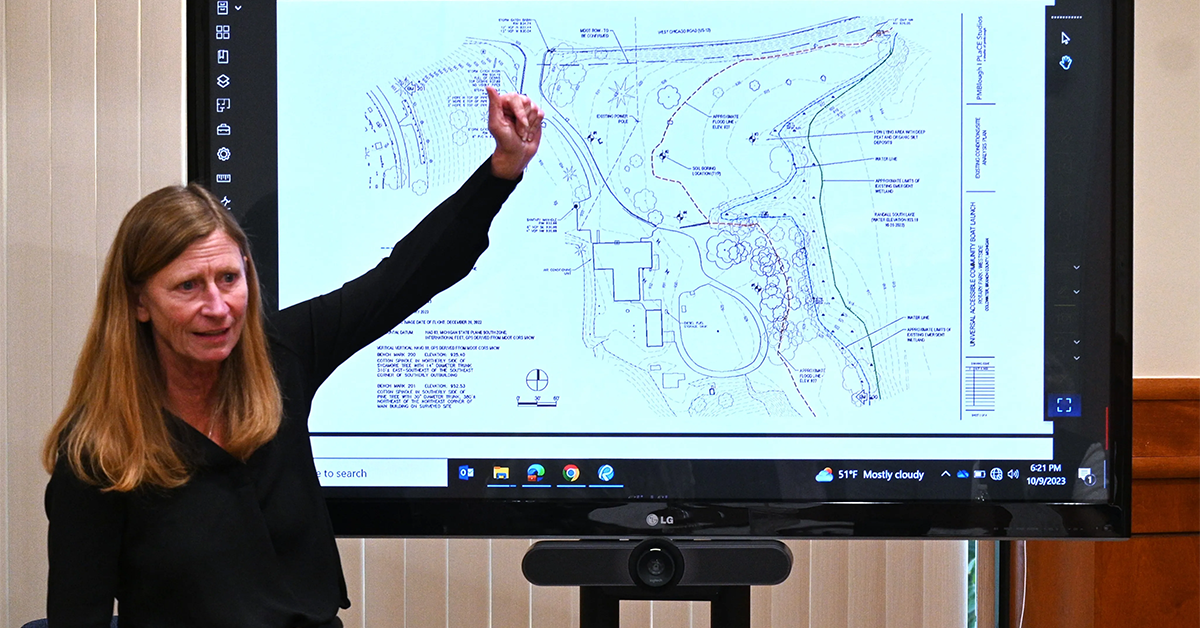
In a clear demonstration of how marijuana tax revenues can play a pivotal role in community development, Coldwater's Rotary Park is undergoing significant renovations funded by these funds. Here's how this initiative is helping reshape the local landscape:
The Backdrop
Coldwater City Council has channelled its marijuana excise tax revenues to revamp the Rotary Park, which is divided by the Coldwater River on South Lake. In a unanimous decision, the council has decided to proceed with the construction of a new boat launch and marina docks on the park's west side.
Understanding the Landscape
The park's current boat ramp is not just inconveniently located on the east side, launching directly into the river channel, but it's also unsafe. Moreover, the entrance to this launch and its parking area near the U.S. 12 bridge pose safety concerns due to poor sightlines.
Fortunately, the revised plan involves shifting this launch to the park's west side, using the entrance to Oak Grover Cemetery's south section. This strategic move not only improves safety but also optimizes the use of the park's expansive terrain.
Overcoming Natural Challenges
The park's natural soil structure threw a curveball during the initial phase. With soil borings revealing deep peat deposits and organic silt underneath the topsoil, constructing a stable asphalt parking lot seemed daunting. However, recreational architect Pam Blough proposed a viable solution – constructing parking lots using solid supported concrete or a permeable rock material system, similar to a successful project she handled in Wyoming city.
Moreover, while much of the area along the water is protected wetlands, the region near the U.S. 12 bridge remains an exception. The plan involves establishing a twin concrete launch ramp in this area, while relocating the current canoe/kayak launch across the river.
A Vision for Tomorrow
Aside from these major developments, the larger wooded east side of the park is slated for expansion, promising a host of recreational options – from trails and fishing docks to open spaces with potential for other enhancements.
Further funding avenues are also being explored. With the city having already pledged over $750,000 from marijuana excise tax revenues for the park's development, additional funds from a March 2025 marijuana excise tax payment will be matched with a state grant to finance the east side development.
In Conclusion
The story of Rotary Park in Coldwater offers a compelling case for the potential benefits of marijuana tax revenues. With the park's transformation set to be completed by the summer of 2024, Coldwater's residents will soon witness a direct positive impact of these funds on their community. The council's vision and the strategic use of tax revenues set a precedent for other cities to consider similar initiatives, leveraging such resources for the greater good.
Rick Johnson Requests Prison Delay Due to Health Concerns
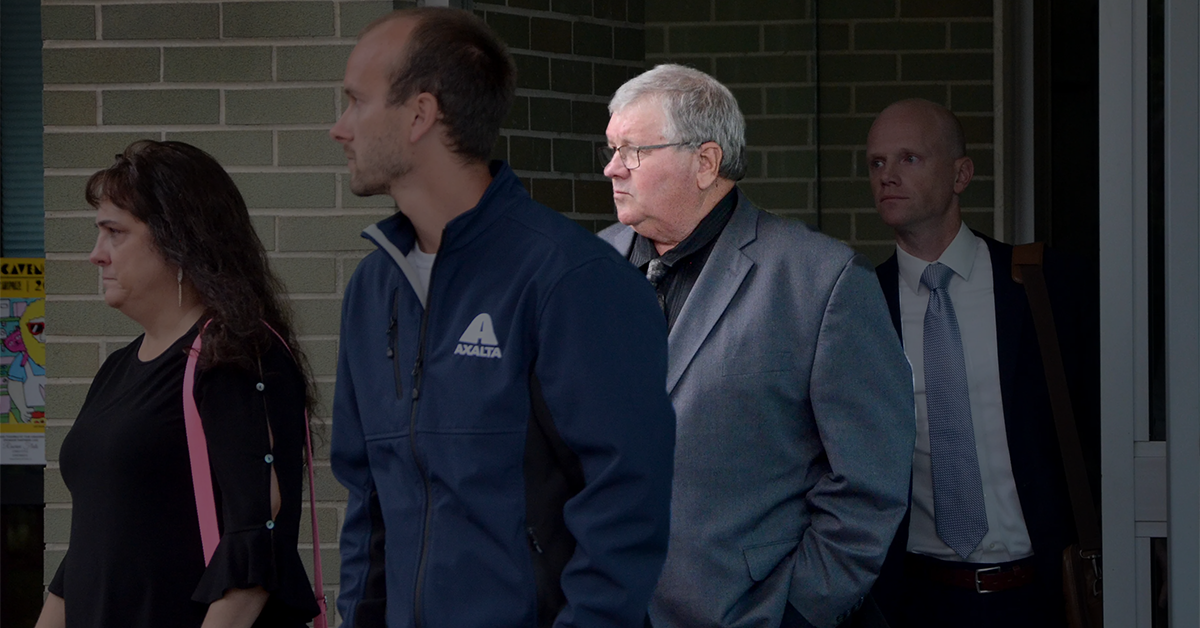
Rick Johnson, the former Speaker of the Michigan House, has requested a delay in beginning his prison sentence due to recent heart surgery. Johnson, known for his significant role in the most extensive public corruption case in Michigan over the last three decades, was scheduled to report to a federal prison in Duluth, Minnesota by October 24th.
The 70-year-old ex-Republican representative from LeRoy was convicted for accepting bribes exceeding $110,000 in connection with manipulating the Michigan marijuana industry. This situation was further complicated by personal indiscretions, which highlighted the extent of his misuse of power.
Nicholas Dondzila, Johnson's attorney, filed an appeal to U.S. District Judge Jane Beckering to postpone the commencement of Johnson's 55-month sentence to around December 2nd. This delay would allow Johnson, who recently underwent coronary artery bypass graft surgery, adequate recovery time. "The extended start date ensures Mr. Johnson's health is closely monitored and managed post-surgery," Dondzila mentioned in the official court document. Prosecutors have expressed no opposition to this request.
Johnson's role as the chairman of Michigan's medical marijuana licensing board from May 2017 to April 2019 came under scrutiny when it was discovered that he accepted bribes from prominent figures in the marijuana industry. John Dawood Dalaly, an Oakland County entrepreneur, received a 28-month federal prison sentence related to this case. Meanwhile, lobbyists Brian Pierce and Vince Brown are awaiting their sentencing set for October 18th.
The Duluth prison, positioned near Lake Superior's northern coastline and roughly 700 miles from Lansing, has previously housed notable inmates. Among them are ex-New York Mets player Jerry Koosman, imprisoned for tax evasion, and influential businessman Stuart Levine, who played a role in the conviction of ex-Illinois Governor Rod Blagojevich.
Given Johnson's current health status, his physician, Dr. Brandon Wojcik, has vouched for the 90-day postponement, emphasizing the challenges in maintaining his medical regimen in a prison environment. Dondzila also noted the physical constraints Johnson faces, such as limited mobility, which makes travel from Michigan to Minnesota especially daunting.
Michigan Marijuana Businesses Face Penalties for Various Infractions
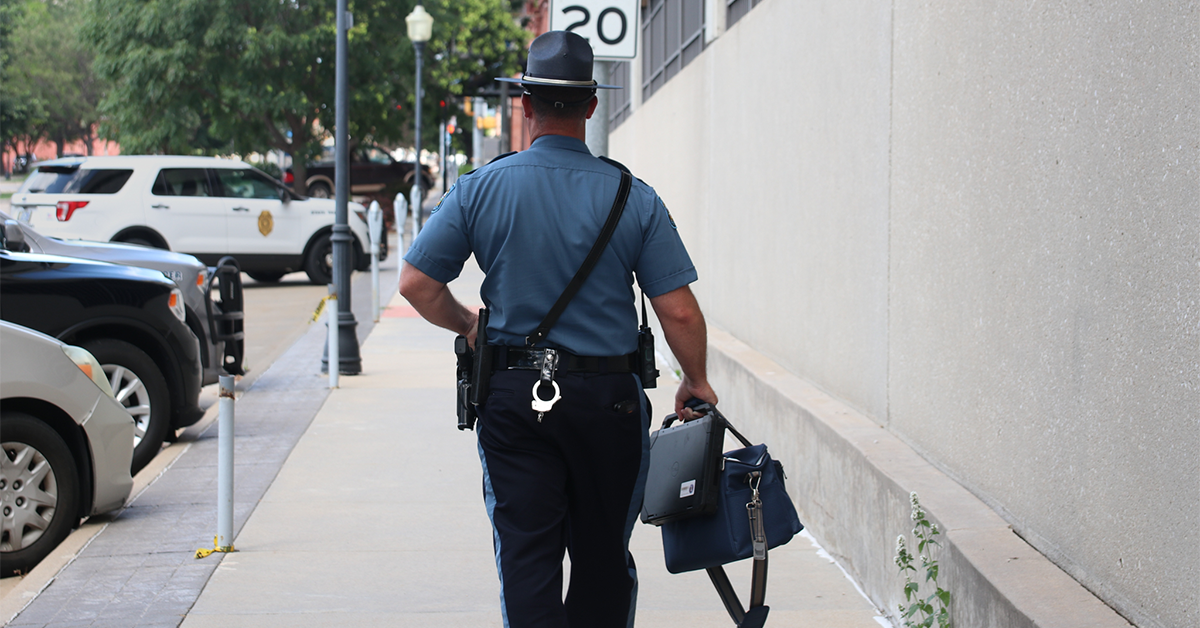
Michigan's burgeoning marijuana industry experienced regulatory hiccups this September, with numerous dispensaries and other cannabis enterprises facing fines. The reason? A mix of non-compliant sales, packaging discrepancies, and security lapses.
Based on data from the Cannabis Regulatory Agency, it's clear that some of these businesses didn't just have one-off incidents. Multiple fines were issued to a number of companies, pointing to consistent issues in their retail operations.
Marijuana Main Street? Rochester to Vote on Cannabis Retail Proposals
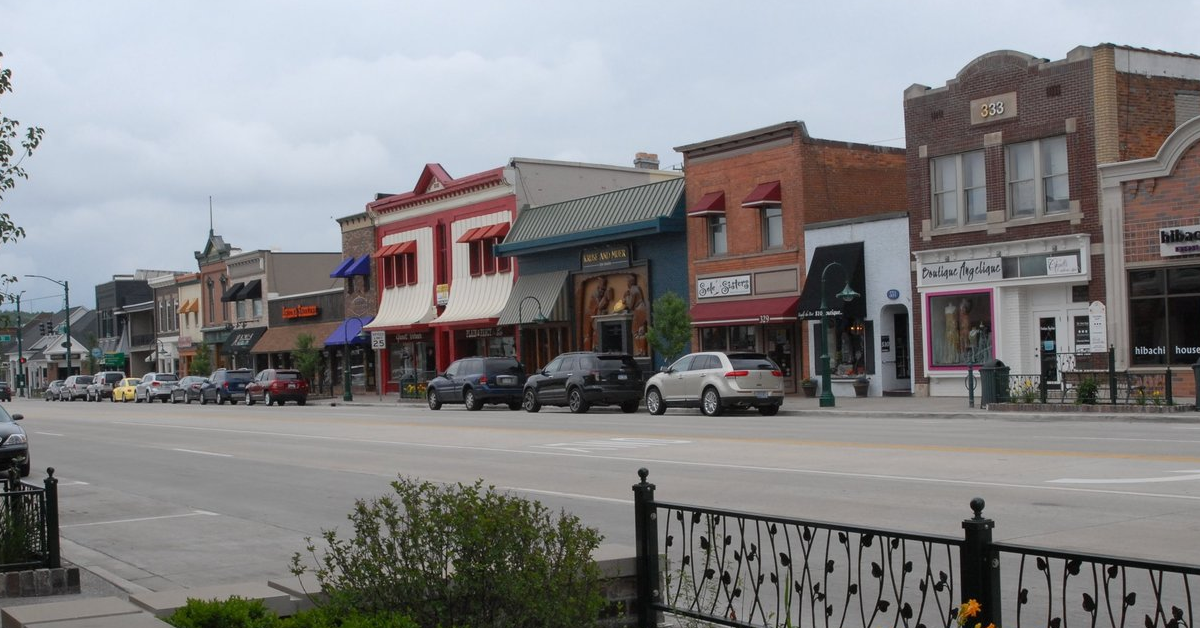
On November 7th, Rochester will be abuzz with voters deciding on two pivotal cannabis-related ballot proposals.
These proposals, initiated through a petition by Stockbridge-based advocacy group, the "Open Stores In Rochester Committee," offer a significant departure from the norm. Typically, such ordinances and charter amendments come from the City Council, but this time it's the voice of the people leading the charge.
Back in 2018, the Michigan Regulation and Taxation of Marihuana Act legalized recreational marihuana for those over 21. A crucial element of this act allows citizens to initiate ballot measures through petitions.
City Attorney Jeffrey Kragt clarifies that the upcoming ballot isn't a City Council initiative. Once a petition garners sufficient signatures, it gains the momentum to move forward. Current city ordinances, established in 2018, explicitly ban marijuana establishments within Rochester. This new motion, if passed, would essentially pave the way for three retail marijuana stores in Rochester, treating them akin to standard retail outlets.
Rochester's Mayor, Stuart Bikson, expressed that these stores could even find a home right in the heart of downtown. The only restrictions being that these establishments couldn't be in residential zones or within 800 feet of K-12 educational institutions.
But what exactly are the two proposals?
-
Proposal One: Seeks voter approval for an ordinance allowing three adult-use cannabis retail establishments in Rochester.
-
Proposal Two: Questions the voters about establishing a cannabis licensing charter, which will lay out an application process, selection criteria, and regulations for these establishments.
Kragt highlighted that the language of these proposals, crafted by the Open Stores in Rochester Committee, will integrate into the City's Charter and Code of Ordinances upon approval. He assures that the committee's role would be limited post-approval, barring their applications for licenses.
Rochester DDA Chairman, Ben Govanelli, shared some numbers. To land these proposals on the ballot, 360 signatures were needed for the ordinance and 560 for the Charter amendment. He also mentioned that the Committee has been proactively securing potential site locations.
With four locations under consideration, including 727 N Main St. and 908 N. Main, there's a buzz about potential effects on downtown Rochester. The DDA, while not taking a firm stance on the cannabis issue, voiced concerns about potential traffic increase and the impact on property values.
However, it's not just about potential challenges. Each of these proposed retail locations could generate approximately $60,000 in tax revenue annually. This equates to nearly 1% of the combined budget of the Rochester city general fund and DDA this year.
Yet, not everyone is on board. The "No Pot On Main Street Committee," consisting of concerned residents and business owners, isn't against marijuana. Their reservations lie in the location of these dispensaries and the potential influx of traffic. Christian Hauser, from the committee, emphasized the need for a more inclusive decision-making process.
On the flip side, Noah Harfouch, a Rochester-based attorney and supporter of the proposal, believes cannabis businesses are becoming as mainstream as any other retail entity. He advocates for embracing this change and acknowledges the profound financial impact they can have on local communities.
From Skepticism to Acceptance - Paw Paw Embraces Cannabis
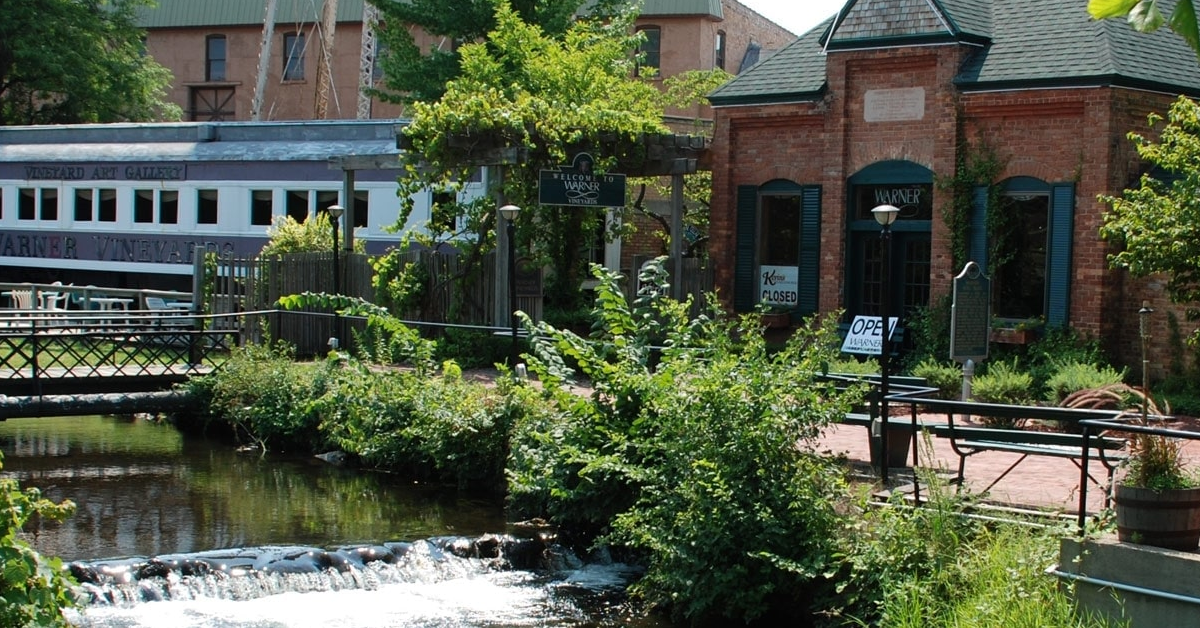
Paw Paw, Michigan, has experienced a remarkable transformation in its relationship with the cannabis industry over the past few years, mirroring the broader shift seen across the state.
Five years ago, Paw Paw's cannabis scene was in its infancy, often operating on the fringes with limited dispensaries and a narrow product range. The mention of cannabis dispensaries might have been met with raised eyebrows or skeptical looks. However, as Michigan adopted a more inclusive stance on marijuana, Paw Paw adjusted to the tide, witnessing a notable evolution.
With clearer regulations coming into play, local businesses were presented with a well-defined path to operation. This clarity, in turn, catalyzed a surge in investments, both in terms of finance and expertise. Soon, the town was buzzing with a growing number of dispensaries, each offering a diverse range of products. From the traditional dried cannabis flower to innovative edibles and topicals, the array widened and the quality bar rose.
But the change wasn't just commercial. The community's perception of cannabis underwent a profound shift. Once whispered discussions about marijuana became open forum conversations. The town began hosting events, seminars, and workshops focusing on the medicinal and therapeutic benefits of the plant. This created an atmosphere of understanding, busting myths, and highlighting the genuine benefits and potential risks of cannabis.
Today, Paw Paw stands as a reflection of adaptability and progress in the cannabis sector. The community-driven movement around cannabis signifies more than business; it showcases the town's commitment to understanding, acceptance, and growth.
As the cannabis sector in Paw Paw continues its upward trajectory, the town solidifies its reputation as a hub for quality cannabis products and expertise. The story of Paw Paw is not just of a town embracing an industry but of a community coming together in understanding and acceptance.
Keego Harbor Revisits Marijuana Ballot Initiatives
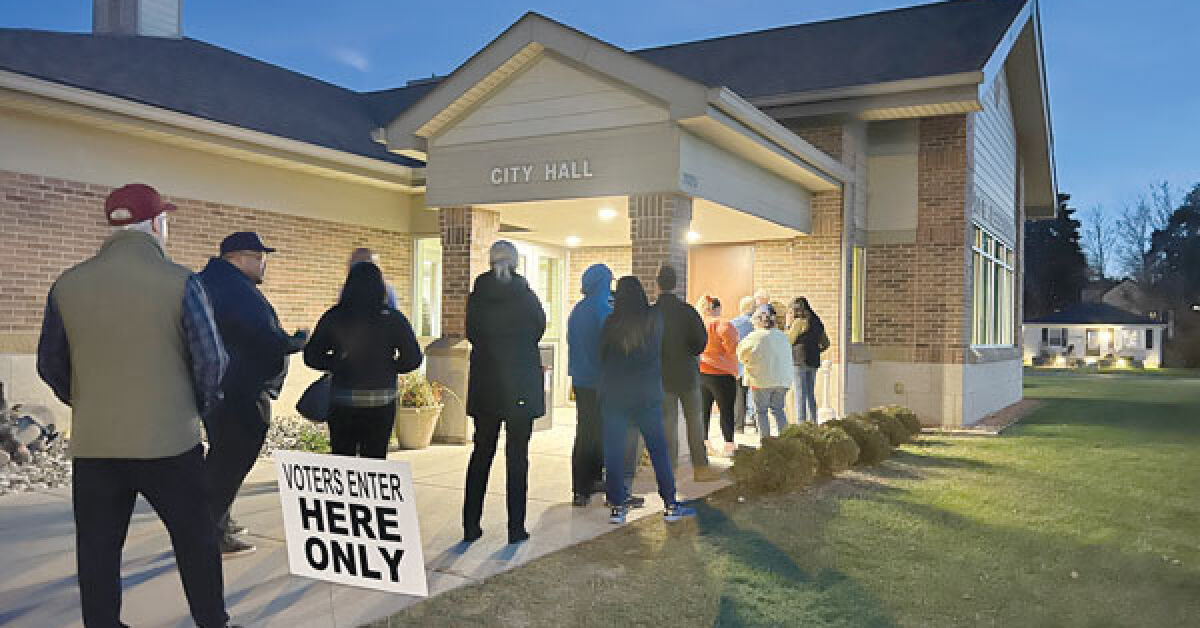
In a consequential decision for Keego Harbor, Michigan, residents are once again poised to shape the marijuana landscape within the city limits. This represents the second call in a year for Keego Harbor's electorate to voice their stance on the contentious issue.
A Glimpse Back in Time
Back in 2008, Michigan as a state gave the green light to medical marijuana, and by 2018, recreational use had joined the ranks of legality. Despite statewide sanctioning, the discretion still lies with local municipalities to either embrace or shun commercial marijuana activities.
Currently, Keego Harbor holds an 'opt-out' status, meaning sales of both medical and recreational marijuana are not allowed. This stance was put to test last year when a ballot initiative seemed set to redefine the city's marijuana framework.
This proposal from the group named 'Oakland Cares' sought to discontinue Keego's ban on medical marijuana establishments. Moreover, it called for the establishment of a city department dedicated solely to the medical marijuana domain, aiming to fine-tune local facility regulations.
While the initiative was backed by a majority (637 voting in favor against 527 opposed), a subsequent judicial decision by the Oakland County Circuit Court rendered it null and void.
In shedding light on this, Anthony Chubb, an attorney affiliated with Giarmarco, Mullins & Horton P.C., mentioned that the changes proposed exceeded the limits of a mere charter amendment and necessitated a charter revision, as per Michigan law. This view was validated by the Circuit Court.
Keego's Leadership Weighs In
Mayor Rob Kalman expressed concerns about the past proposal, noting the procedural lapses that led to its rejection. "They failed to adhere to the right process for a charter revision," Kalman emphasized.
Fast forward to today, and Keego still remains in the 'opt-out' zone. However, the forthcoming general election on November 7th might herald change. The City Council has greenlit a proposed amendment for the ballot. If it gains traction, the city would permit a single marijuana retailer by ordinance, while keeping all other marijuana-based enterprises at bay.
However, there's a twist. Another group, named by Chubb as the "Open Stores in Keego Harbor Committee", has floated an ordinance and charter amendment for the same ballot. Kalman expressed reservations, "For a city as petite as Keego, with a population just touching a few thousand, is there really a need for two marijuana stores?"
Given the proclivity of Keego residents to support marijuana businesses, the City Council is striving to retain some reins over the decision-making process. Kalman reaffirmed his faith in local control, stating that while they're open to marijuana sales, they're not in favor of grow operations.
A Tale of Two Proposals
The first proposal, supported by Keego, is succinctly titled, "City Charter Proposed Amendment to Allow a Marihuana Retailer by Ordinance & Prohibit Establishments". It clearly outlines the intention to permit a single retailer and prevent other marijuana endeavors.
The alternative, coming from an "outside group" as Kalman phrases it, would replace Keego's current status, paving the way for two retail cannabis establishments.
The pro-marijuana faction, represented by the Open Stores in Keego Harbor Committee, underscores the financial boons from marijuana sales. According to their website, "voteyeskeego.org", Keego Harbor is missing out on substantial state excise tax revenue from retail cannabis sales, a figure that touched nearly $52,000 per store in 2023.
A Dissenting Voice
Not everyone is on board with the marijuana movement. Michael Karson, the only City Council member to vote against placing a city charter proposal on the ballot, feels that marijuana dispensaries don't align with Keego's vision, especially given its educational institutions.
The Road Ahead
If both amendments – one endorsing a solitary retailer and the other advocating for two – find favor with voters, the one accruing more votes would take precedence, says Chubb.
Mayor Kalman encapsulated his message for the electorate by emphasizing the importance of 'off-year' elections. He hopes that residents take an informed stance and vote wisely.
In Conclusion
Keego Harbor, at the crossroads of a pivotal decision, represents a microcosm of the broader debate on marijuana commercialization. While the financial perks are undeniable, the concerns about societal impact and local ethos are equally valid. The upcoming election will provide a keen insight into which way the wind blows in this Michigan city.


 Helpful Links
Helpful Links